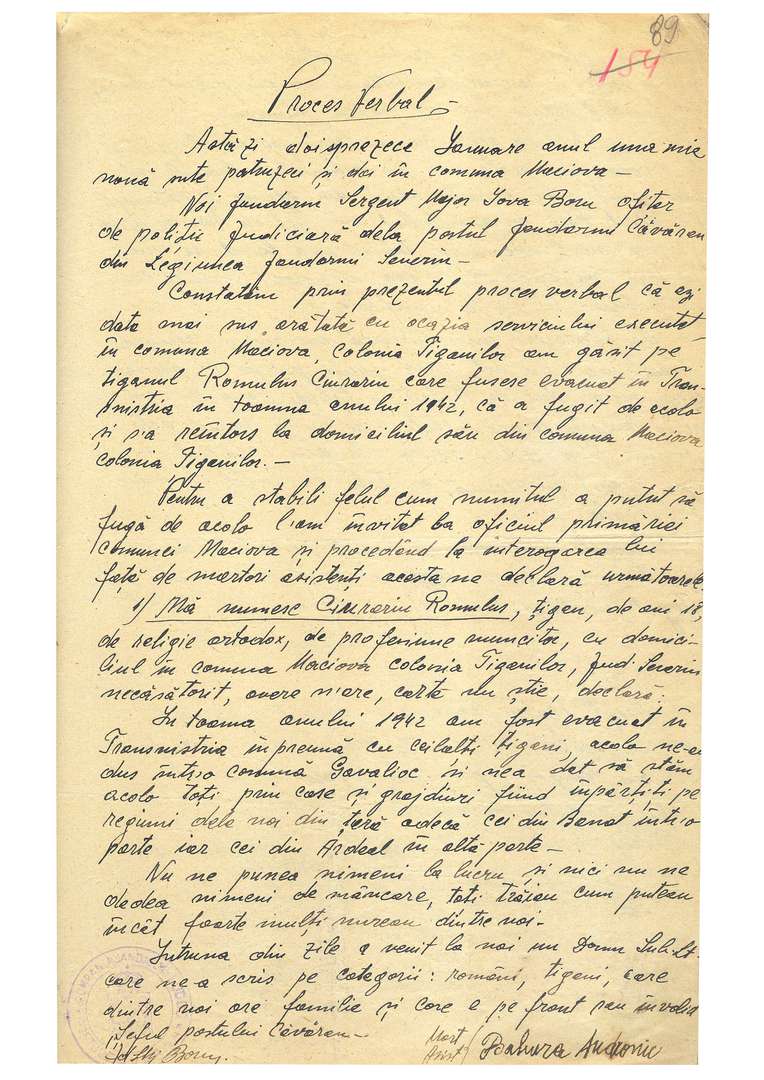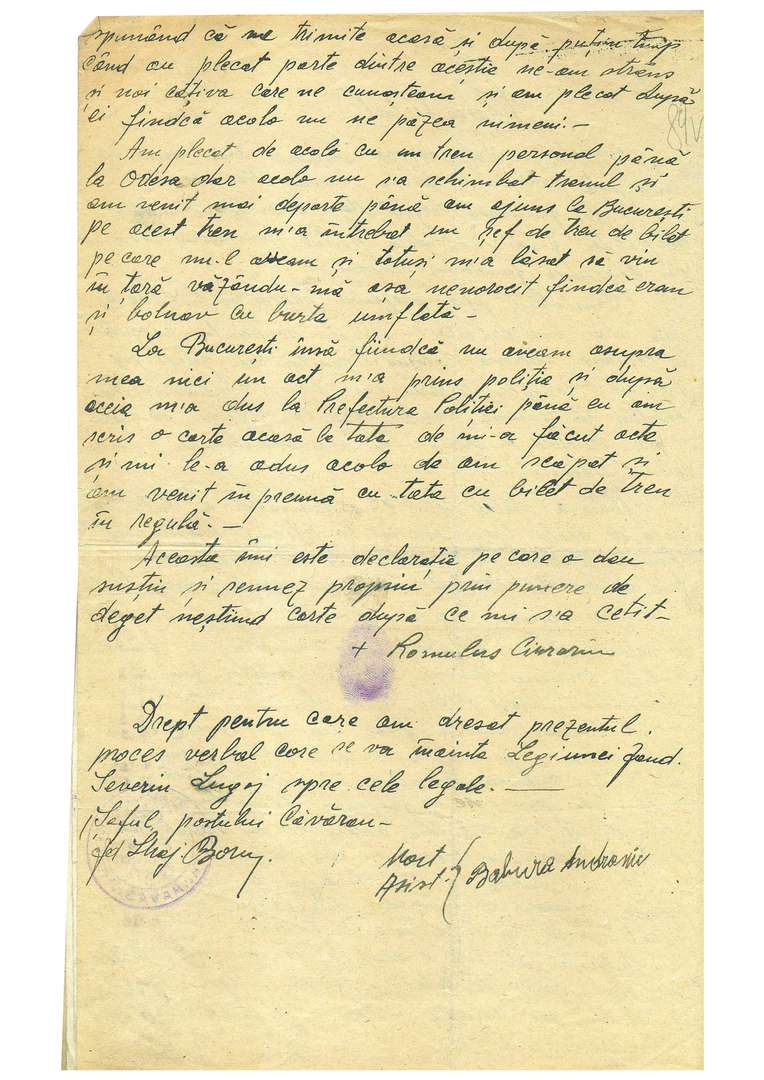12 January 1943, Maciova
Transcript
Today, 21 January 1943, in the commune of Maciova
We, Gendarmerie Sergeant Major Iova Boru, judicial police officer at the Căvăran Gendarmerie Station of the Severin Gendarmerie Legion.
We note in this protocol that today, on the date shown above, while carrying out our duties in the commune of Maciova, Colonia Ţiganilor (Roma Colony), we found the Rom Romulus Ciurariu, who was evacuated to Transnistria in the autumn of 1942 but fled from there and returned to his home in the commune of Maciova, Colonia Ţiganilor.
In order to establish how he fled from there, we invited him to the Office of the Mayor of the Commune of Maciova and questioned him in front of the witnesses present. He explained the following:
1) My name is Ciurariu Romulus, I am a Rom, aged 18, of the Orthodox faith, labourer, resident in the commune of Maciova, Colonia Ţiganilor, Severin County, single, no assets, illiterate, declare:
In the fall of 1942, I was evacuated, together with other Roma, to Transnistria, where we were taken to the commune of Kovalivka [from 1941 to 1944: Covalevca]. We were sent there to live in houses and stables, split up by region of origin in the country, meaning those from Banat on the one side and those from Transylvania somewhere else.
No one gave us work and no one provided for us, we all lived how we could and many of us died.
One day, a sub-lieutenant came to us and registered us based on categories: Romanians, ‘Gypsies’, which of us had a family and who is at the front or invalid. He said that he would send us home. Shortly after some of them set off, the few of us who knew one another got together and went after them, because no one was guarding us.
I left there on a regional train bound for Odessa, but the train wasn’t replaced there and I continued until I arrived in Bucharest. On the train, I was asked by a conductor for the ticket, which I didn’t have. Nonetheless, he allowed me to enter the country, because he saw that I was so miserable, sick, with a swollen belly.
However, because I didn’t have any documents, I was caught by the police in Bucharest and taken to the police prefecture until I wrote a postcard to my father, he got me the papers and brought them to me. And I managed to get released and travelled with my father on a regular train ticket.
This is the statement I deliver, certify, after having been read its content, and sign by fingerprint, as I am illiterate.
- Romulus Ciurariu
As a result, I have completed the present minutes, which will be handed to the Severin Gendarmeire Legion, Lugoj, to be taken into legal consideration.
/ Chief of the [Gendarmerie] Station Căvăran,
Jd. S. Maj. [signed] I. Boru
Witness assistant [signed] Barbura Andronie









